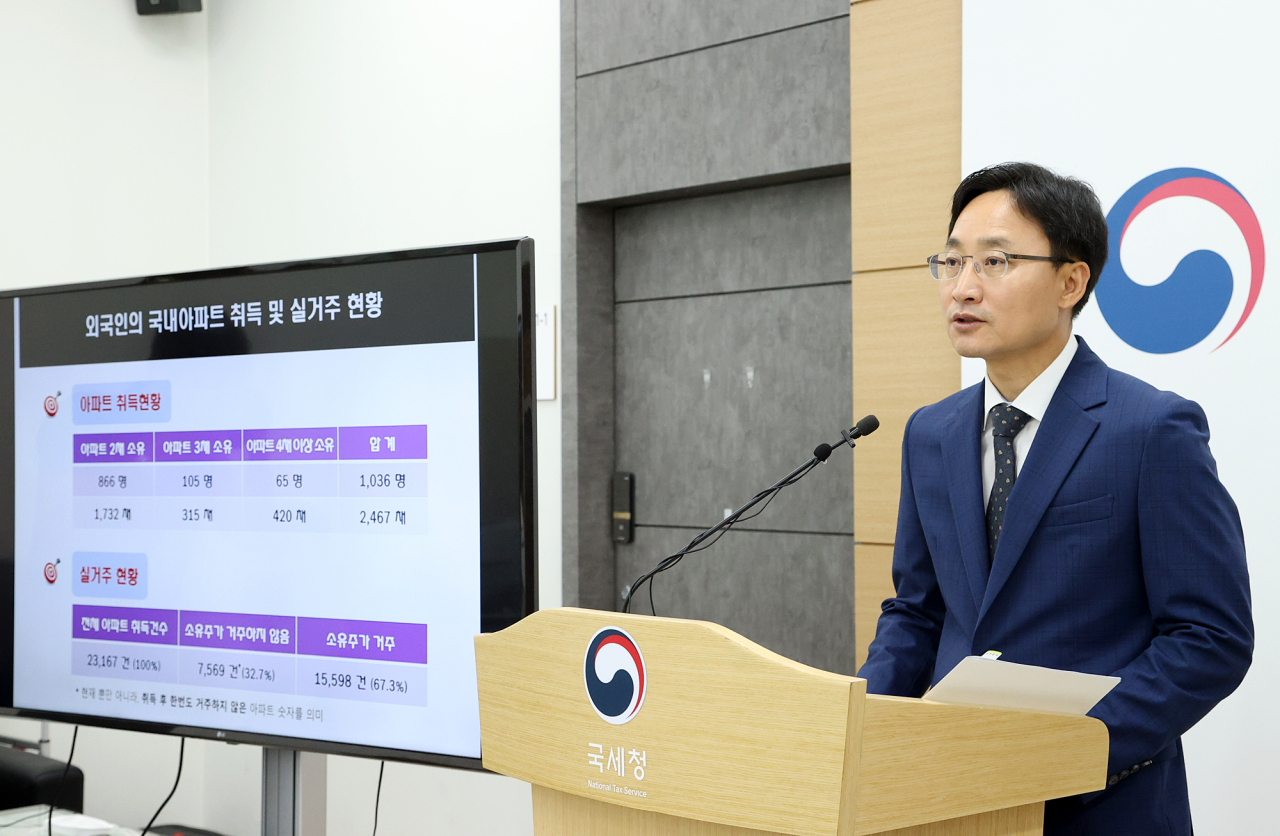Tax authorities zero in on foreigners with multiple homes
By Jie Ye-eunPublished : Aug. 3, 2020 - 15:28

SEJONG -- The nation’s tax agency has launched a probe targeting 42 foreigners who own multiple apartments here and are alleged to have evaded taxes, as part of the government’s drive to curb surging housing prices and discourage speculative investment, officials said Monday.
The probe involves a 40-something US citizen who has purchased 42 homes in South Korea since 2018 for 6.7 billion won ($5.6 million) in total.
The American underreported their rental income to evade income taxes, the National Tax Service alleged.
A Chinese national with a student visa bought eight homes and also failed to report rental income to the tax authorities, the agency alleged.
Amid the bubble-prone real estate market, the number of foreigners who had purchased apartments across the country as of May this year increased nearly 27 percent from a year earlier. Since 2017, foreign nationals have purchased a total of 23,219 apartment units valued collectively at 7.67 trillion won, said Lim Kwang-hyun, the NTS’ assistant commissioner for investigations, at a press briefing. This is the first separate tax evasion probe targeting foreigners, he added.
The biggest buyers by nationality were Chinese, including those from Hong Kong, with 13,573 purchase transactions, followed by Americans and Canadians with 4,282 and 1,504, respectively. The number of apartments purchased by Taiwanese and Australians stood at 756 and 468, respectively. Among the foreigners, 985, or 4.2 percent, had Korean resident registration numbers. This may indicate dual citizenship or having renounced Korean citizenship.
NTS said foreigners, like Koreans, prefer apartments in Seoul and nearby cities. They bought 4,473 apartments in Seoul, worth 3.27 trillion won collectively. Gyeonggi Province saw foreign acquisitions of 10,093 apartment units worth 2.75 trillion won while Incheon had 2,674 such transactions worth 625.4 billion won.
Of the homes purchased by foreigners during the cited period, 7,569, or 32.7 percent, were not occupied by the owners. Just over 1,000 foreigners purchased more than two homes in Korea, said Lim, adding that some of them may have bought them as speculative investments.
When foreigners acquire apartments here for the purpose of speculation, not for residential use, Lim said, the tax authorities here inform their counterparts in the buyers’ home countries. The NTS collected 1.5 billion worth of taxes from foreign nationals who had bought apartments as a form of speculation last year.
According to the tax law, foreigners have the same real estate tax obligations as Koreans.
“We will make our best efforts to prevent worries over local housing price increases (as a result of) foreign capital. When necessary, foreigners and Koreans will be punished without discrimination for real estate tax evasion after thorough inspections.”
By Jie Ye-eun (yeeun@heraldcorp.com)








![[Kim Seong-kon] Democracy and the future of South Korea](http://res.heraldm.com/phpwas/restmb_idxmake.php?idx=644&simg=/content/image/2024/04/16/20240416050802_0.jpg&u=)








![[KH Explains] Hyundai's full hybrid edge to pay off amid slow transition to pure EVs](http://res.heraldm.com/phpwas/restmb_idxmake.php?idx=652&simg=/content/image/2024/04/18/20240418050645_0.jpg&u=20240418181020)

![[Today’s K-pop] Zico drops snippet of collaboration with Jennie](http://res.heraldm.com/phpwas/restmb_idxmake.php?idx=642&simg=/content/image/2024/04/18/20240418050702_0.jpg&u=)